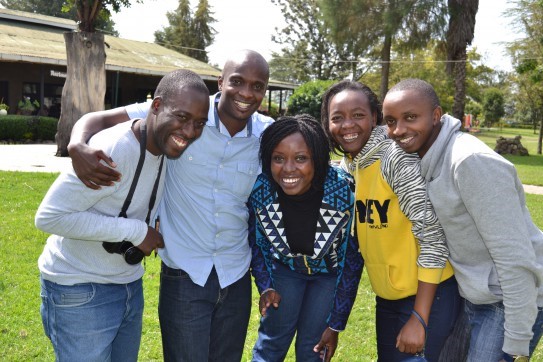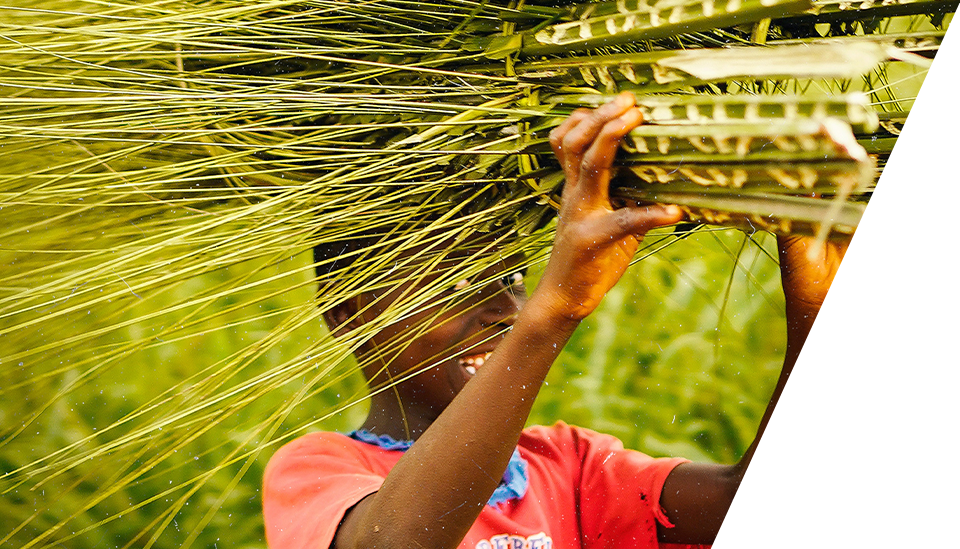Courtney Paisley: Pairing Youth with Experience for Agricultural Renewal in Kenya
In this guest blog post, Courtney Paisley, Director of Young Professionals for Agricultural Development (YPARD) shares the stories of success from young Kenyan agriculture enthusiasts who have taken part in a pilot mentoring program.
This article originally appeared in the July edition of WFO’s F@rmletter.
Switch your eyes and ears off, for a moment, to the on-going discourse about agriculture as an “ageing sector” that doesn’t attract the youth anymore. Instead, step into YPARD: a vibrant international network of young professionals for agricultural development, which counts thousands of members all around the world.
We are living in an era in which rapid urbanization has led to a decline in rural populations, and for the first time ever the majority of the world’s population lives in a city. The UN World Health Organization predicts that “by 2030, 6 out of every 10 people will live in a city, and by 2050, this proportion will increase to 7 out of 10 people”. This means that more young people than ever before are moving to cities and towns to find work, leaving few behind to work in rural areas.
But at YPARD, we know there is a new generation of young professionals in agriculture that is moving to centre stage. They have the ideas and ambition to become successful entrepreneurs, farmers, researchers and policy makers, but they are often held back by the lack of access to networks, skills and financing.
By joining our network, our members themselves recognized how much they benefit from engaging and connecting with senior agricultural professionals in business, research, extension services and ICT to help them reach their full potential in agricultural development.
That is why in 2015, after thorough studies of different mentoring models, a YPARD Pilot mentoring program was launched. Its aim was to unlock the talent of young agriculturalists, learning from the experience of seniors and cementing strong relationships between the two. Several models were tested, including face-to-face mentorship in Kenya. This was run in collaboration with African Women in Agricultural Research for Development (AWARD).
15 mentees, from an initial pool of 150 applicants, were paired and matched with 15 mentors. Over the course of the year they had one on one sessions with their mentors, and were equipped with skills in communication, conflict resolution, networking as well as on farm management practices.

After just one year, with the help of their mentors, the mentees have made outstanding progress. A graduation ceremony closed the program and the mentees shared some inspiring achievements.
With the help of his mentor Dr. Justus Ochieng, Duncan Cheruiyot successfully applied and received a PhD scholarship to study at the International Center of Insect Physiology and Ecology (icipe) in Nairobi, where he intends to assess the agronomic and phytochemical properties of Brachiaria grass for use in management of cereal stem borer in a ‘push-pull’ technology.
“Without YPARD, I wouldn’t have a mentor, a great listener and an adviser,” commented Duncan. “Now, I have a development journal and a Purpose Road Map (PRM), which is a guide for my personal, interpersonal and academic/professional development.”
Esther Ndichu’s tomato greenhouse farming project has benefited enormously from the advice of her mentor, Nicholas Korir. He helped her fight fusarium wilt – a soil borne disease that previously claimed around 30% of her production. “I have come to learn that consistent communication with my mentor has played a very big role in success of my farming,” Esther said. “This being my first greenhouse it had a lot of challenges which, if I had no advice from my mentor, I probably would have given up along the way.” She successfully supplied tomatoes to her local area in a time of scarcity.
Emily Ongus, wants to design a new consultancy service for farmers, and he mentor, Patricia Wangui of the Zeitz Foundation has connected her to extension officers. “Young people must be taught how to think, not what to think,” comments Patricia. “Mentoring only provides guidance that, if well followed, it can lead to mentees achieving their full potential.”
Allan has been able to register his agricultural services business and attend a series of leadership and agriculture conferences, with the support of his mentor, Franklin. “YPARD has influenced the way I network, the way I take agriculture, and has helped me embark on a lifetime journey in capacity building, to help youth in East Africa embrace agriculture and use it as a tool to effectively mitigate unemployment and positively contribute towards the growing economy,” says Allan. “It’s said that a person may need a doctor once a year, an engineer once every three months, but a farmer at least three times a day. I want to see YPARD reach more countries and impact agriculture with magnitudes measurable on a global scale.”
YPARD is currently looking at upscaling this mentorship initiative. The mentorship program evaluation report will be released early September. The new generation of agriculturists is shaping up and maturing to ensure the future of agriculture and sustainable livelihoods; inter-generational discussions and actions is key to their development.
For more information on YPARD’s mentoring program visit: http://www.ypard.net/mentoring

